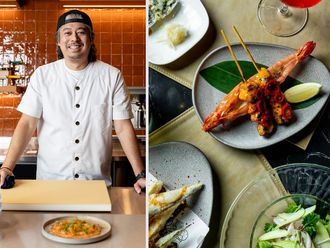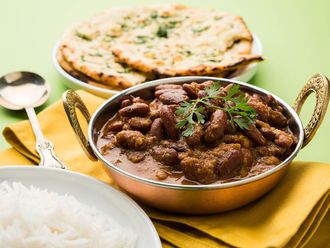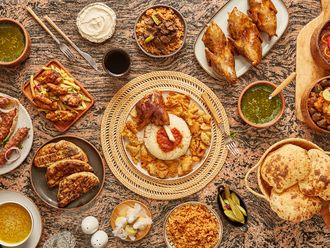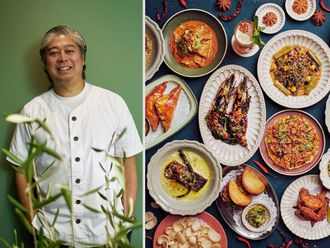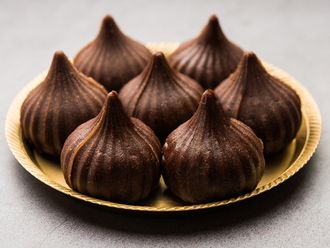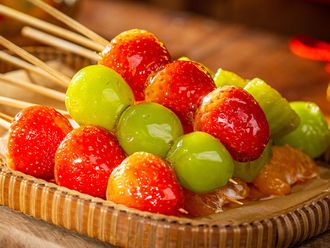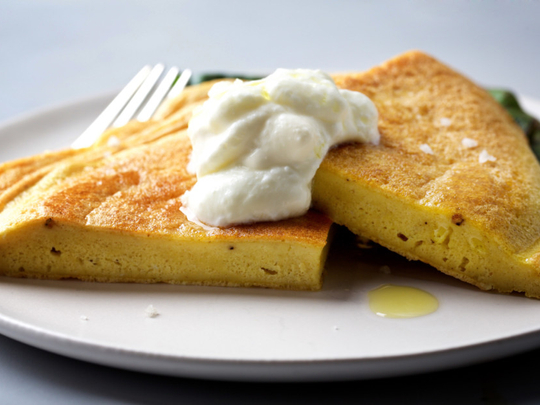
I like experimenting with new flavours and ingredients. But then the spice or condiment I’ve tracked down just sits on the shelf.
I picked up preserved lemons because so many of British chef Yotam Ottolenghi’s recipes called for them. After using the fruit for one okra dish, I have yet to use them again. Pomegranate molasses for food columnist Melissa Clark’s quinoa salad sounded delicious; I made the salad once, and all the remaining sticky syrup is still in my pantry.
So my sister, who is also my roommate and culinary partner-in-crime, and I decided we needed to change things. We would celebrate the Year of Using Everything Up (YOUEU), in the same vein as a bunch of sillier or stricter January “challenges,” such as Refinery29’s #TakeOutTakeOut, BuzzFeed’s Clean Eating Challenge and Epicurious’s #Cook90.
Ours doesn’t have a hashtag and is perhaps less Instagrammable. It also is not the most grammatically graceful phrase, but the name stuck. The Year of Using Everything Up involves repurposing the half-cup of leftover lentils in the refrigerator and finding recipes for the bag of bulgur wheat my sister got from her boss’s discarded Blue Apron ingredient pile.
One of the recipes that has stuck with me so far is a chickpea flour-egg pancake hybrid that I call the Chickpea Omelet. Alaina Sullivan, a senior designer at Bon Apptit, posted it on her Instagram. It looked so beautiful in all its golden glory that I had to try it. And even better: I had all the ingredients.
I’ve made similar recipes before. There’s a wonderful squash-and-chickpea pancake that I make for dinner often; leftovers are perfect for breakfast, lunch or dinner. But that leaves me with a bag of chickpea flour sitting in my refrigerator.
Her dish works for me. I’ve been whisking together the egg and chickpea flour mixture, then topping the finished omelette with other ingredients I need to use up, such as caramelised onions, a dollop from the half-full yoghurt container and a sprinkle of za’atar or sumac, two Mediterranean spices I don’t reach for as much as I had intended.
The Year of Using Everything Up already has helped to improve my cooking skills. I’ve become less reliant on recipes, more creative and resourceful. I no longer plan a dinner for every night of the week; instead, I leave a few slots free so I can make sure to actually eat the leftovers from Sunday’s dinner.
The YOUEU also is about wasting less food. I sauté the kale stems I’ve saved from making salads (why isn’t it common knowledge that this is incredibly delicious?), I’ve stopped peeling and started scrubbing carrots (saves prep time), and I make sure I repurpose every extra roasted vegetable or grain of rice (which means grain bowls for days).
So far, it has helped me spend less money on food, too. Who knows? Maybe a #YearOfUsingEverythingUp challenge could go viral. Note: Adding a little baking powder makes it fluffier.
Plain Greek yoghurt, leftover caramelised onions, sauteed greens and roasted squash make great pancake toppings.
Chickpea Omelet
2 servings
Ingredients
4 large eggs
1/2 cup water
1/2 cup chickpea flour
1/2 teaspoon kosher salt
1/2 teaspoon freshly ground black pepper
1/2 teaspoon baking powder (optional)
1/4 teaspoon ground spice, such as cumin, sweet paprika, curry powder or garam masala
1 tablespoon olive oil
Method
1. Whisk the eggs in a bowl until well blended, then whisk in the water, chickpea flour, salt, pepper, baking powder, if using, and the spice of your choice, until well combined and lump-free.
2. Heat the oil in a small non-stick skillet over medium-low heat. Pour in the egg mixture; cook undisturbed for about 5 minutes. Once the underside is set and lightly browned, but the top isn’t fully set, carefully flip the omelette. Cook for about 1 minute more; the omelette is done once the second side is set.
3. Cut into quarters and divide between plates. Serve right away.
— Adapted from a recipe by Alaina Sullivan, who is a designer for Bon Apptit magazine.



